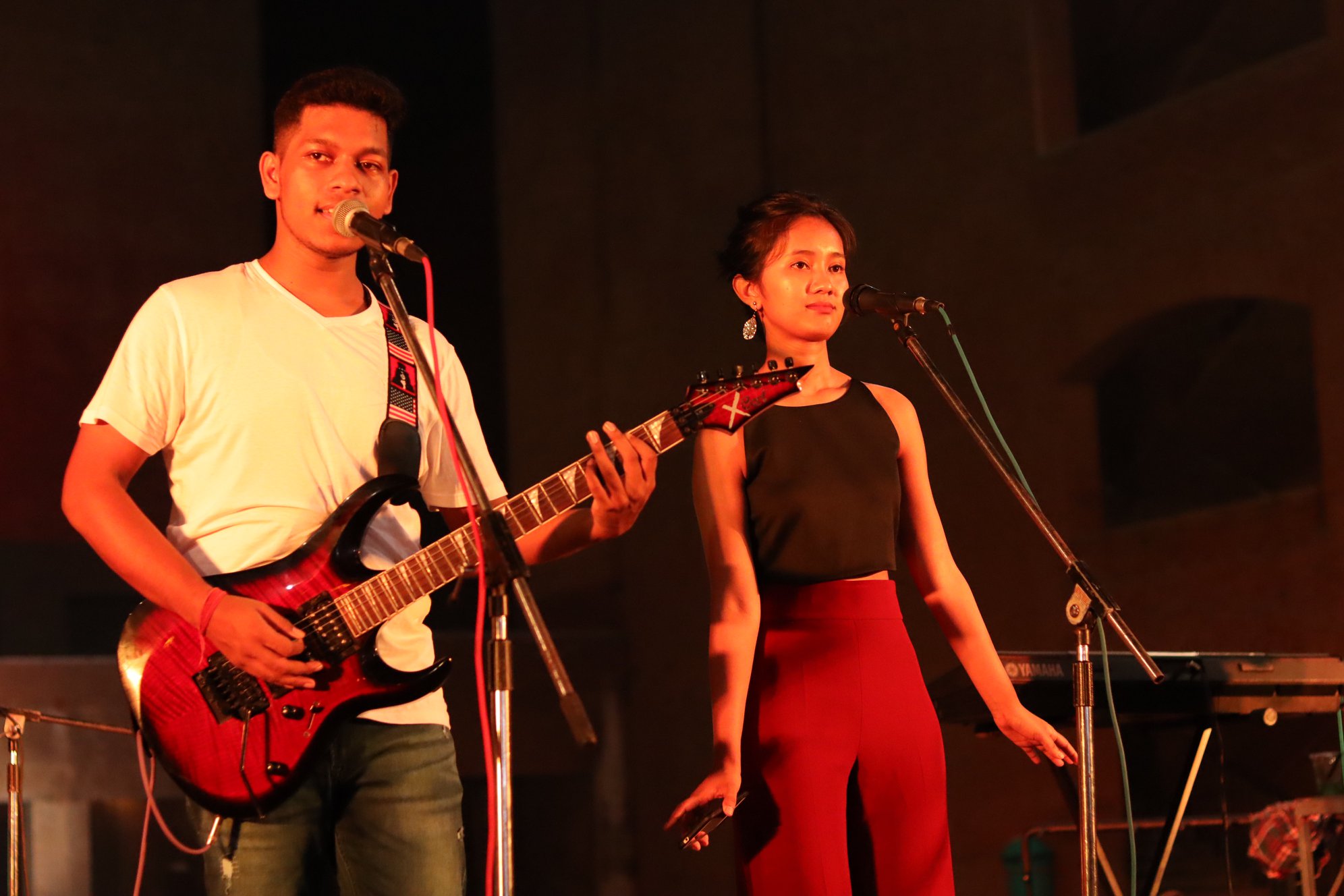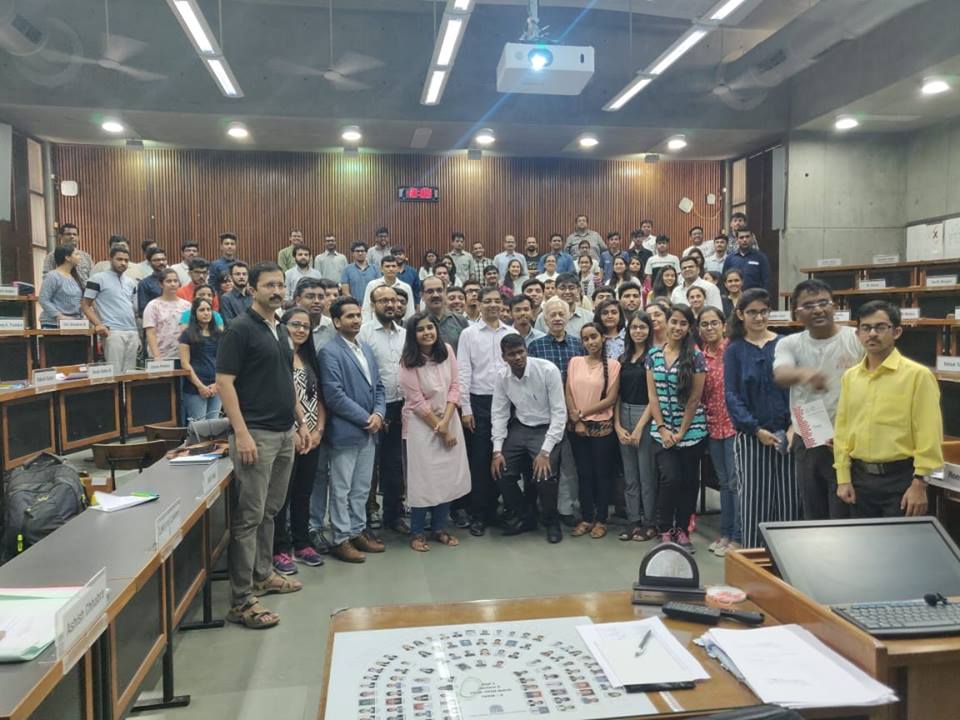ENVISION. ENDEAVOUR. EXPERIENCE.
Indian Institute of Management Ahmedabad organized The Red Brick Summit (TRBS), its flagship management symposium, with a lot of exuberance and dynamism starting from September 29, 2018. The four-day potpourri of the erstwhile Big Four of IIM A – Insight, Confluence, Amaethon and ConneXions – aptly echoed the theme “Envision, Endeavour, Experience.” The Red Brick Summit, named after the famous environs that have come to be associated with over 50 years of academic excellence was supported by Tata Trusts and hosted the “Social Impact Award” to felicitate notable social contributions in the Water & Sanitation Sector by the entrepreneurial minds of our country. TRBS 2018 featured a total of 16 business competitions, 15 workshops, more than a dozen speaker sessions and panel discussions as well as a number of activities, performances, and exhibitions appealing to all age groups. Following are the highlights from the event by The Red Brick Summit team.
SEPTEMBER 29th, 2018 (Saturday) The inaugural session of TRBS hosted Mr. Pratap T. P, the Co-founder and Director, Qwikcilver and Woohoo gift cards; and Anant Maheshwari, the President of Microsoft India who is also an alumnus of IIM Ahmedabad. Mr. Maheshwari spoke about digital transformation and how the world is changing and how our lives will become different with time. He explained the significance of using algorithms on analytics to predict inaccuracies, changes in humanity and run medical procedures. He believed that if one is a constant learner, one will always turn out to be better than a know-it-all person. Ten percent of the total population were probably the smartest of the lot, yet only a handful of them made a difference. Mr. Maheshwari stated the four energy sources governing his life: physical, emotional, intellectual and spiritual. He constantly mentioned the concept of ethics in a profession like his, about the constant challenge they face with data security and privacy. He echoed Microsoft’s mission to empower every person, every organization to achieve more. When asked what motivates him to be in his job every day, he said it’s about pushing boundaries to solve customer problems that drives him.
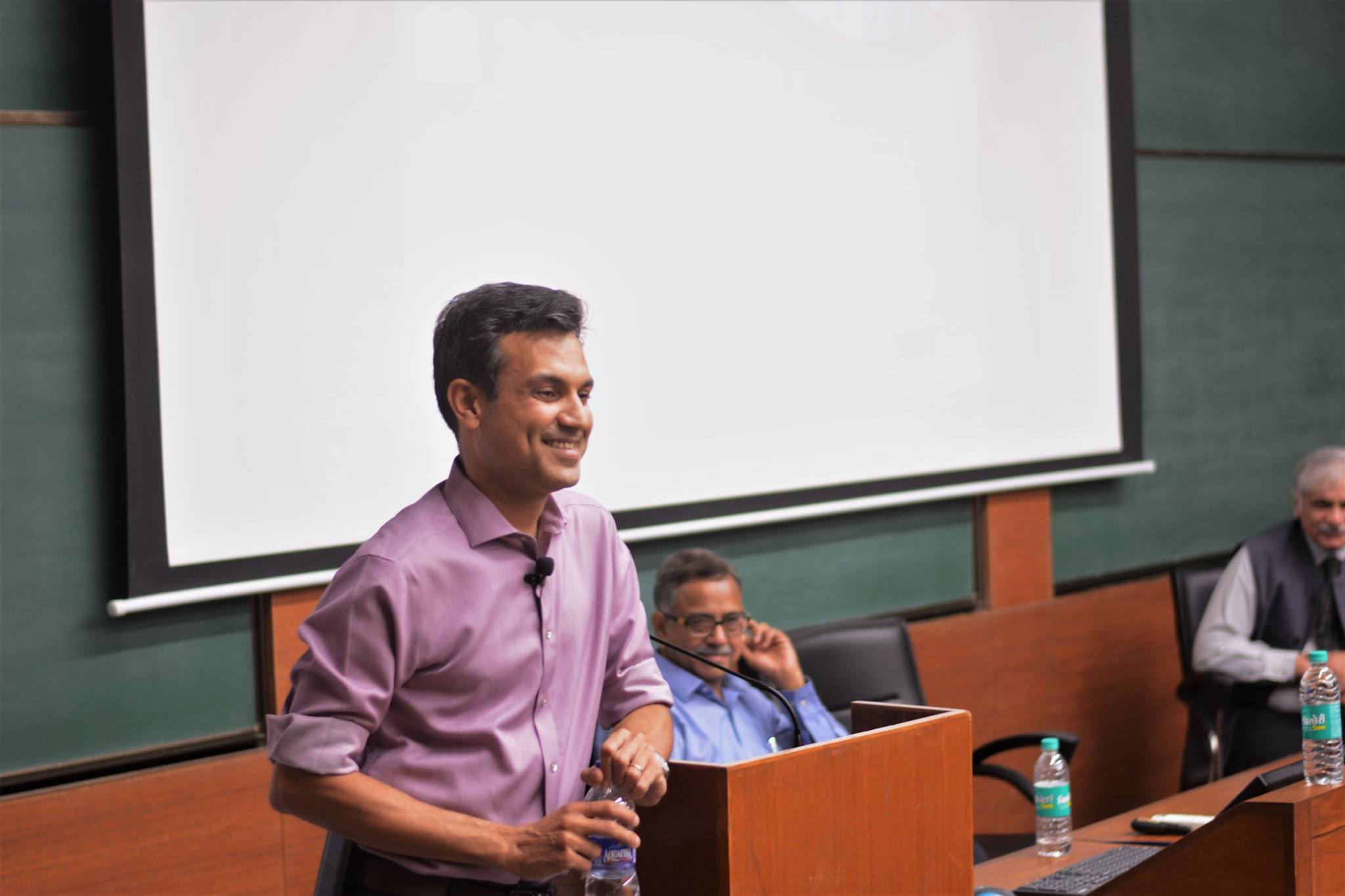
The first day of the four-day festival saw a slew of incredible workshops like Google’s digital marketing workshop, Zerodha’s Investment Planning workshop and Ujjivan Bank’s Social Entrepreneurship workshop. The talk on Journalism by Tamal Bandyopadhyay began with the man of the hour defining the 3 Cs – key drivers – of the journalism industry: Curiosity, Communication and Common Sense. He pressed upon the need to be ethical in one’s conduct as journalists are seen as the custodians of truth. When asked if business journalism is the ideal career path for millennials he responded by saying that the grind is severe, a lot of travelling is required and not everyone can take the hit. If one is passionate about journalism and enjoys it, then it is the right decision. Also, a bit of psychological knowledge is needed to read between the lines. The journalist needs to perfect the art of persuasion and be an all-rounder, not a specialist in one field.
IDEOS in collaboration with TRBS hosted its Innovation Symposium wherein some of the best innovations in the sphere of social entrepreneurship geared up to display their projects and take them to the next level. On healthcare and social support, some of the key innovations on display were ADLE – an Assistive Device for Life Enhancement for the visually challenged, an affordable Braille Printer and Titli – an activity-based learning kit for creating awareness about menstruation. In the domain of agri-tech and rural development, there was an Automatic Cotton Wick Making Machine, a cotton ball picker, a Jacquard lifting machine, a multi-tree climber and an orchard sprayer for controlled pesticide spray. In Ed-tech and livelihood generation, there was Jungroo Learning – an AI-based chatbot for learning assessment, Krishworks – a tablet-based solution for learning English and a low-cost automation kit for training people on PLC operation.
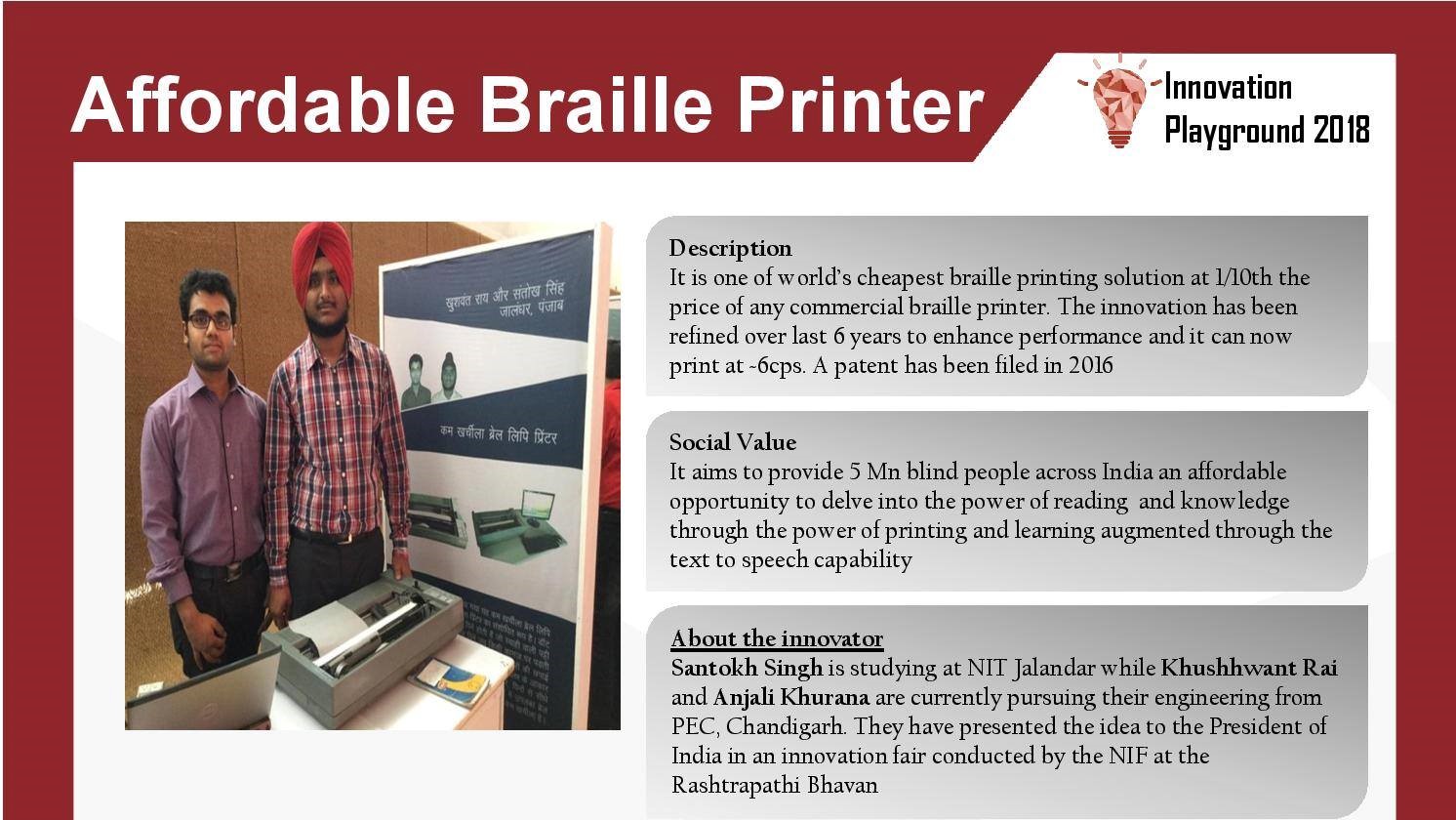
30th SEPTEMBER, 2018 (Sunday) This day of the fest witnessed a plethora of workshops, speaker sessions and impromptu events. A garba night was organised towards the end of the day so that all participants from distant colleges could experience the unique and rustic beauty of garba celebrations in Ahmedabad. The events during the day included an open mic by the music club and dance performances by Footloose, the dance club of IIMA.
Speaker Sessions: Mr. Sanjeev Sanyal, Principal Economic Advisor in the Ministry of Finance, addressed a packed classroom of economics enthusiasts on day 2 of TRBS. Mr. Sanyal began by drawing an interesting parallel between economics and Victorian-era steamships, and gradually moved on to the impact of the recent structural changes in government policy such as the GST and the Insolvency and Bankruptcy code. Throughout the duration of his talk, he used everyday examples to explain his opinions of macroeconomic policy making it an interesting session for both novices as well as the more experienced members of the audience.
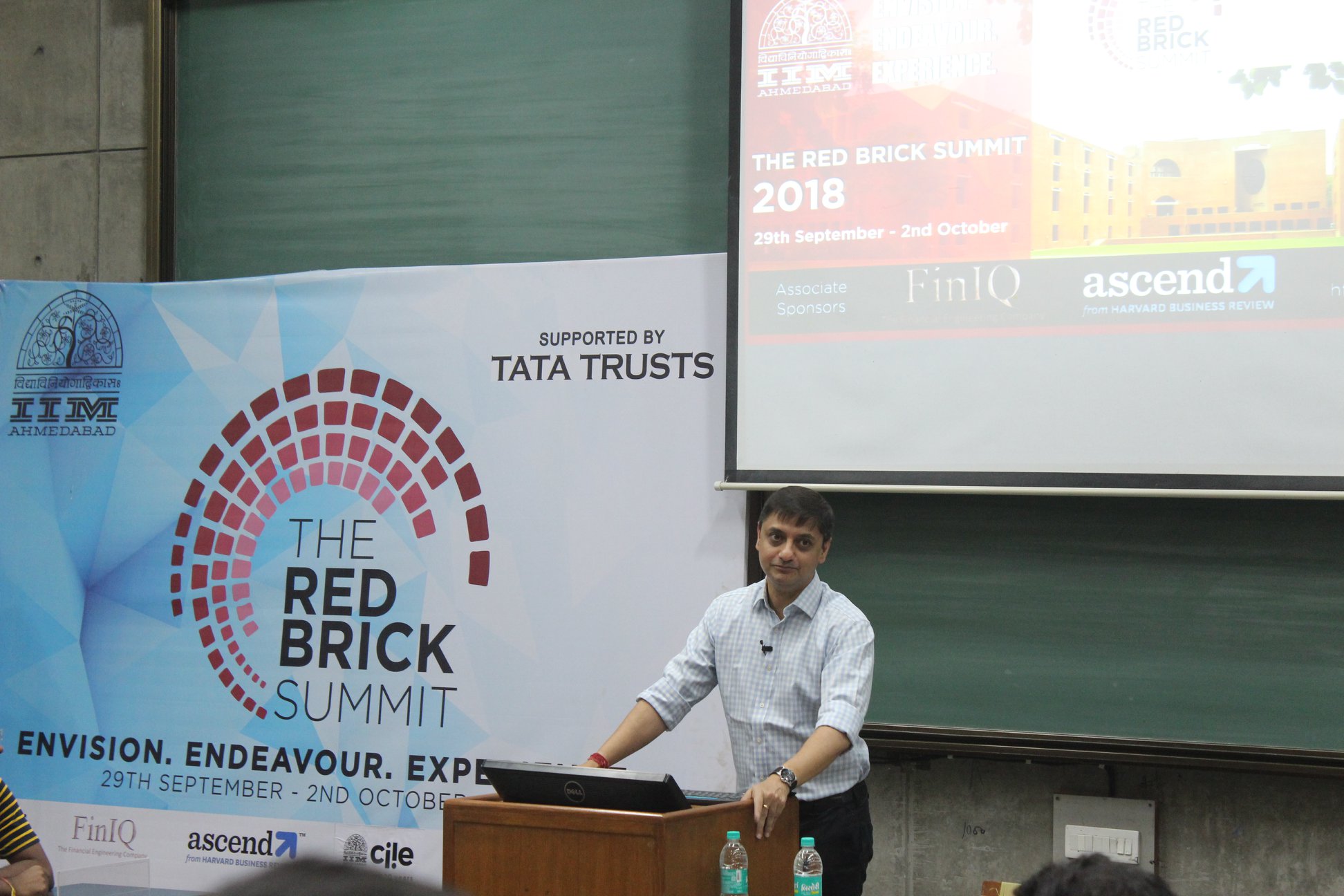
Another speaker of the day was, Mrs Falguni Nayar, founder of Nyyka, an online beauty retailer. Mrs Nayar discussed with the audience Nykaa’s journey towards growth and the acceptability it has achieved as a brand. She elaborated upon various innovations Nykaa has incorporated in the business model to address the need gap of the beauty and wellness products. She attributes Nykaa’s success to the focus company has maintained when faced with challenges. Finally, Mrs Nayar encouraged the audience to challenge the norms and believe in the power of the ideas. In her words, ‘A unique idea is not the one everyone likes (in my case it was the investors), if it is a unique idea many won’t like it and that is what makes it unique.’
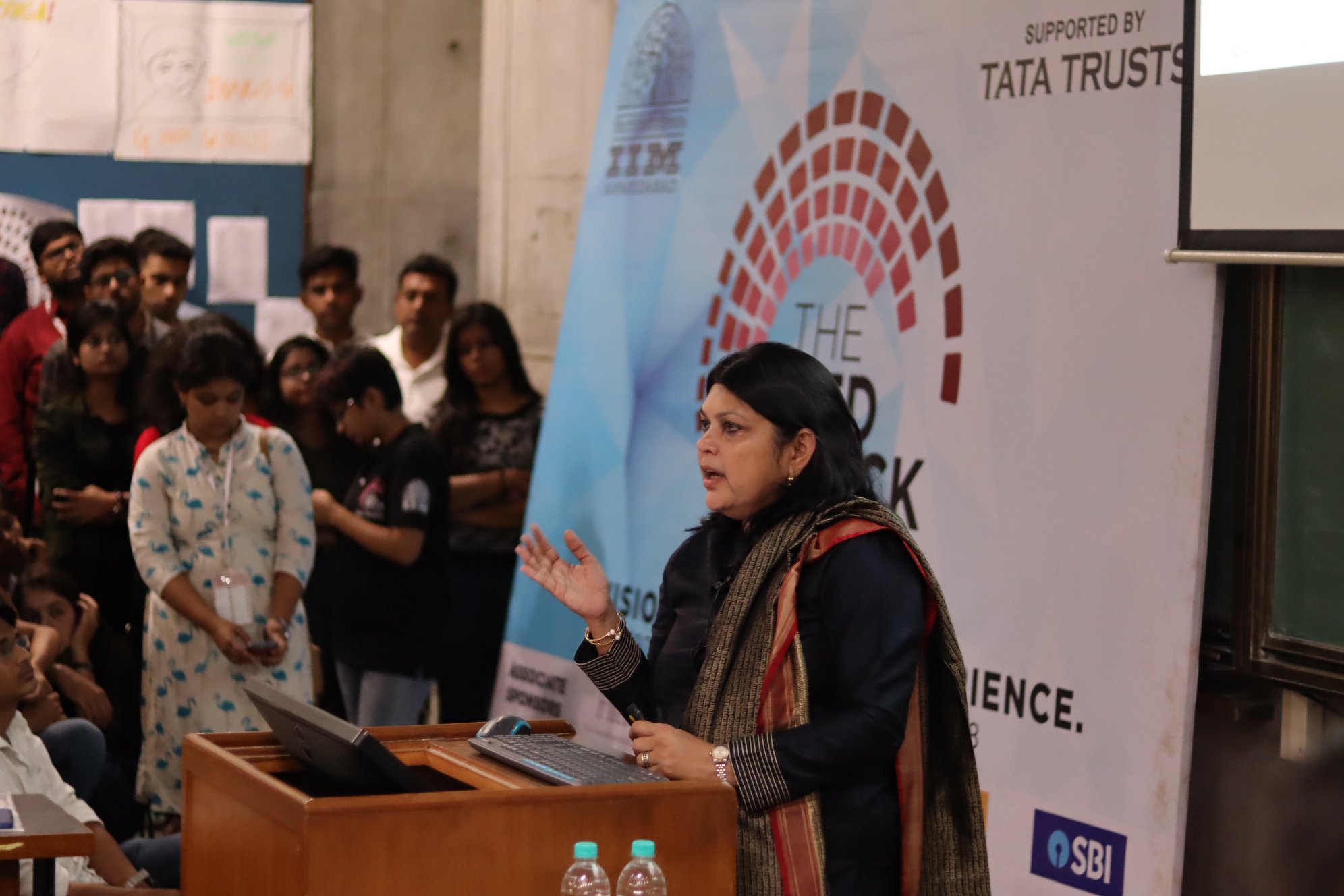
Workshops: Mr. Saket Govind, manager at Havmor’s ice cream unit spoke about the nuances of developing brands through Havmor’s personal story of churning out new varieties of ice-creams every now and then. The speaker talked of a method which he called OLI:- observing, learning and ideating; qualities that are essentials to developing a new brand. The participants were encouraged to think about brand with a perspective outside the textbooks.The importance having a good advertising mix was demonstrated through interesting clips of company’s ad campaigns. The idea is to keep in mind the desires of the customer and develop the product accordingly. Havmor developed a program where top food processing graduates were selected throughout the country and tasked with developing lip-smacking innovative ice-cream flavours. This is how they endeavoured to keep up constant innovation. Participants opined that the workshop was informative, fun and educative.
Nielsen’s market research workshop began with the organizers proudly announcing, “Nobody understands a company better than us.” The host echoed the company’s mission statement, that is, to drive data-based decisions in a connected world and create outcomes for their clients and customers. He went on to explain how the retail measurement services are different for modern trade stores and traditional kirana stores. Contrary to systematic data collection with sampling from the former, about 1200 Nielsen auditors collect retail data (such as price, quantity, etc.) from 9.9 million kirana stores. He went on elaborate on the dimensions for data analysis, the types of facts significant for analyzing and the various estimation methods. He referred to popular brands where Nielsen has contributed in providing significant customer insights, such as Fogg which was branded as “less gas, more spray” with consistent messaging and no selling in Kirana stores. He also explained us about “shopper walk” – how the arrangement of items in a store influence our buying. The workshop turned out to be very interesting and informative and the audience was brimming with queries.
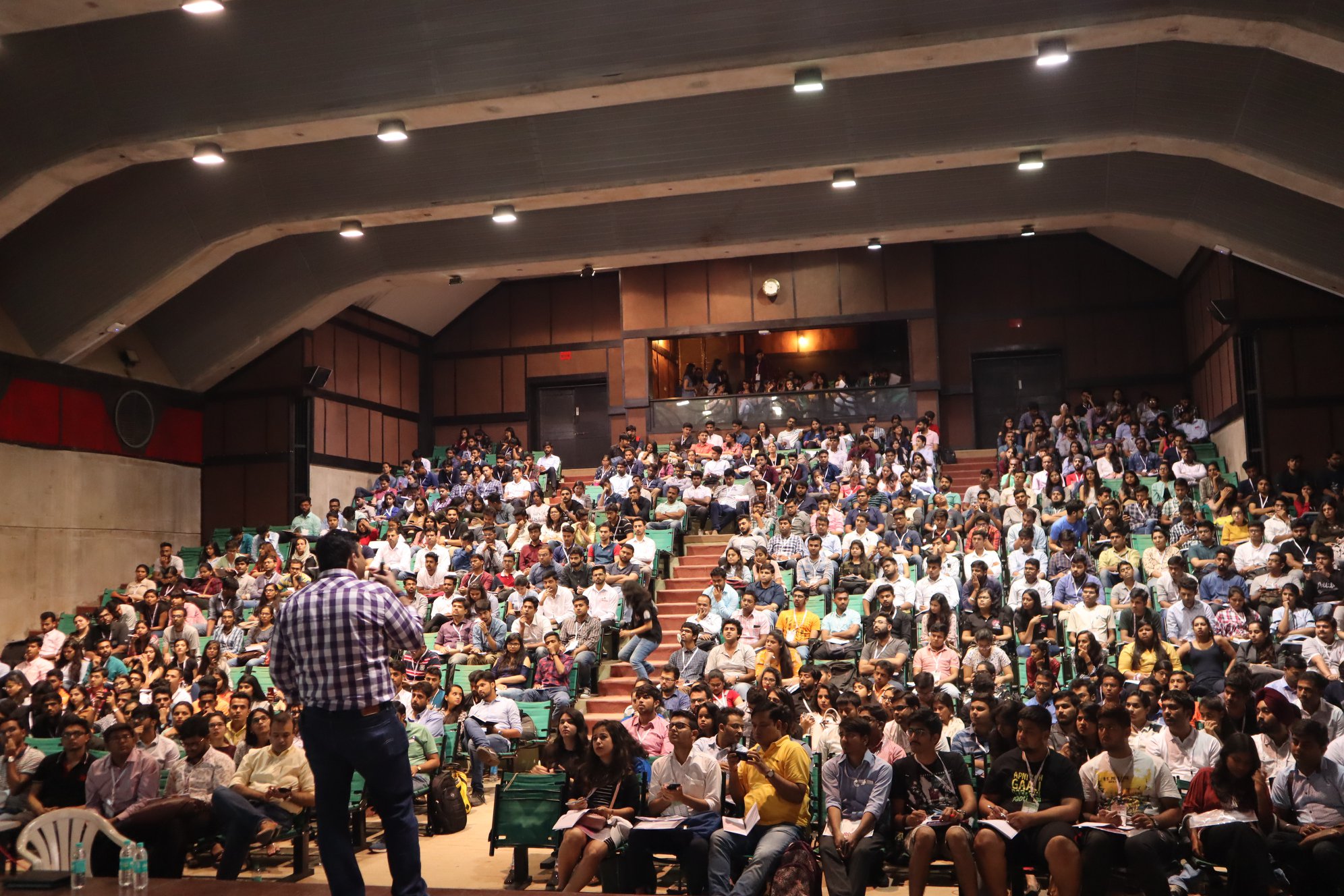
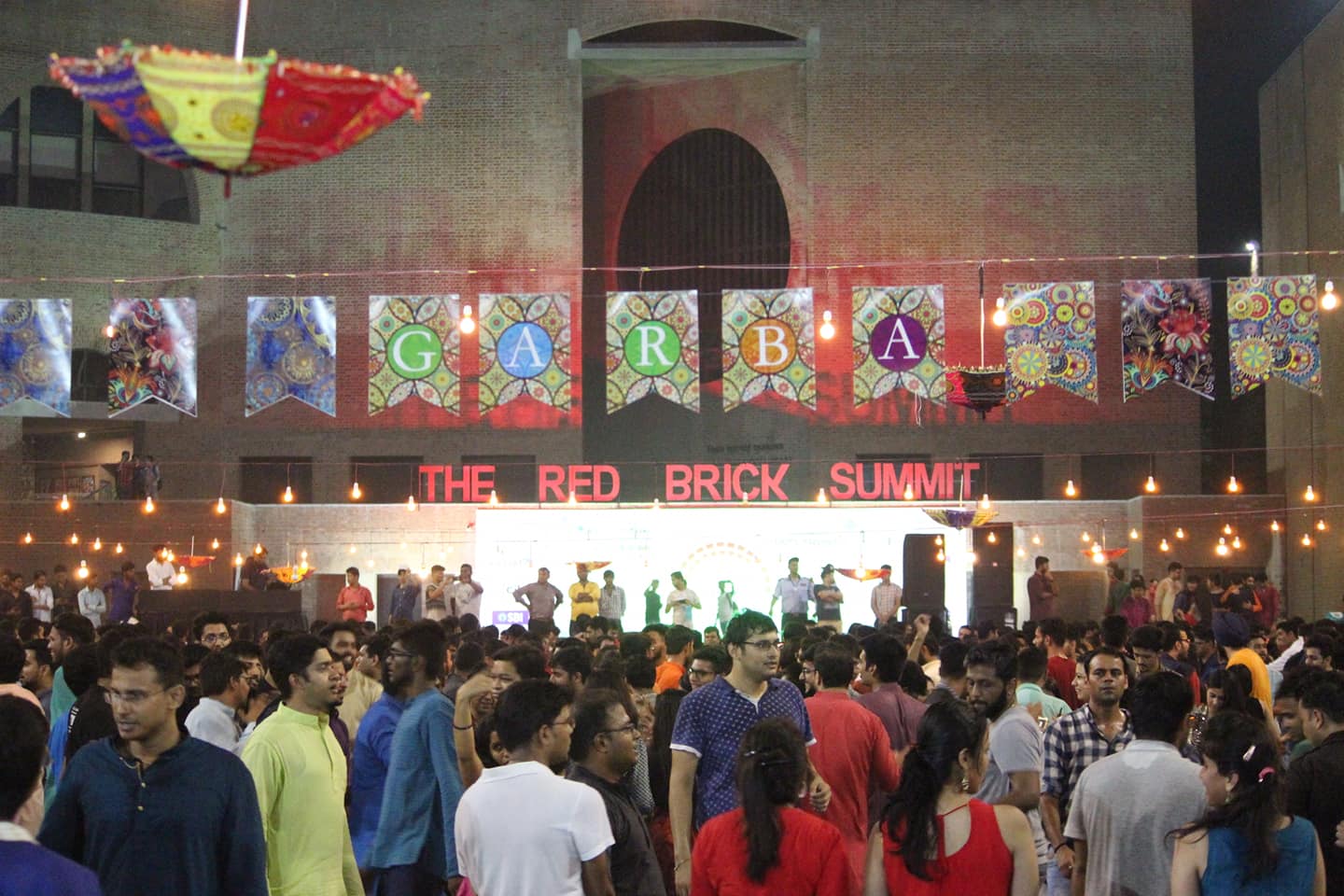
OCTOBER 1, 2018 (Monday) The day witnessed widely attended speaker sessions by two prominent women politicians of India, Ms. Nirmala Sitharaman, the Minister of Defence and Ms. Maneka Gandhi, the Minister for Women & Child Development. There were also workshops covering a gamut of themes from product management to marketing. Kaleido, the flea market at the fest, continued into its third day, selling an eclectic mix of items from indigenous entrepreneurs. Fusion navratri wear to modern wear, from skincare to house decor, from head to feet, everything under one roof. Many of the trinkets selling at Kaleido have been painstakingly designed and made by hand. The day ended with a performance by the Music Club of IIMA.
Speaker Sessions: Hon’ble Minister of Defence, Ms. Nirmala Sitharaman, addressed a packed auditorium as part of the Women Leadership Summit hosted by the student-run body Women Leadership Society (WLS). The discussion was moderated by Ms. Ketki Gupta, a member of WLS. Ms. Sitharaman answered questions about her entry into politics, the representation of women in positions of power and being in charge of a male-dominated sector such as the Defence. Speaking about the barriers women face, she said that while women in India do face unequal challenges, “India is a lot more ready to accept women [in power] than many other countries”.
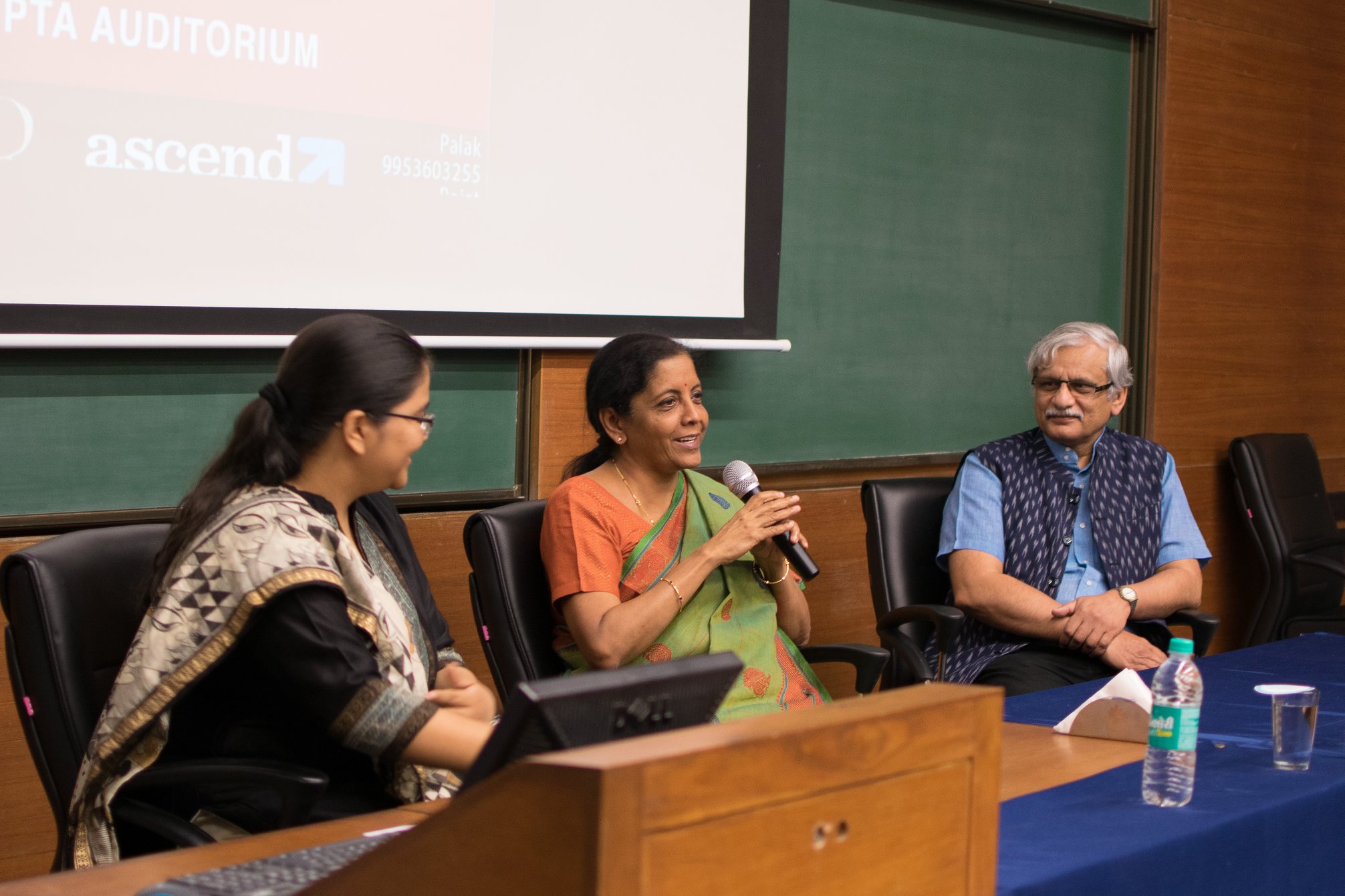
Ms. Maneka Gandhi, the Indian Union Cabinet Minister for Women & Child Development, Government of India was another speaker who graced The Red Bricks Summit a day before Mahatma Gandhi’s birth anniversary. Her interaction with the students was very informative and enriching. She talked about the intricate relationship of the environment, other animals and human beings, and how they are links of a symbiotic chain. She emphasised the importance of collective wellbeing and stressed the ever growing value of sustainable development. While taking a dig at the cruciality of harmonious living, she brought to notice the fact that all species be it humans or animals, are interdependent for their existence on this planet. Her speech was adorned with household examples and various instances that gave a deeper insight to all the listeners present at the event. Her valuable words will surely help tomorrow’s managers to strike a balance between business development and the environment.
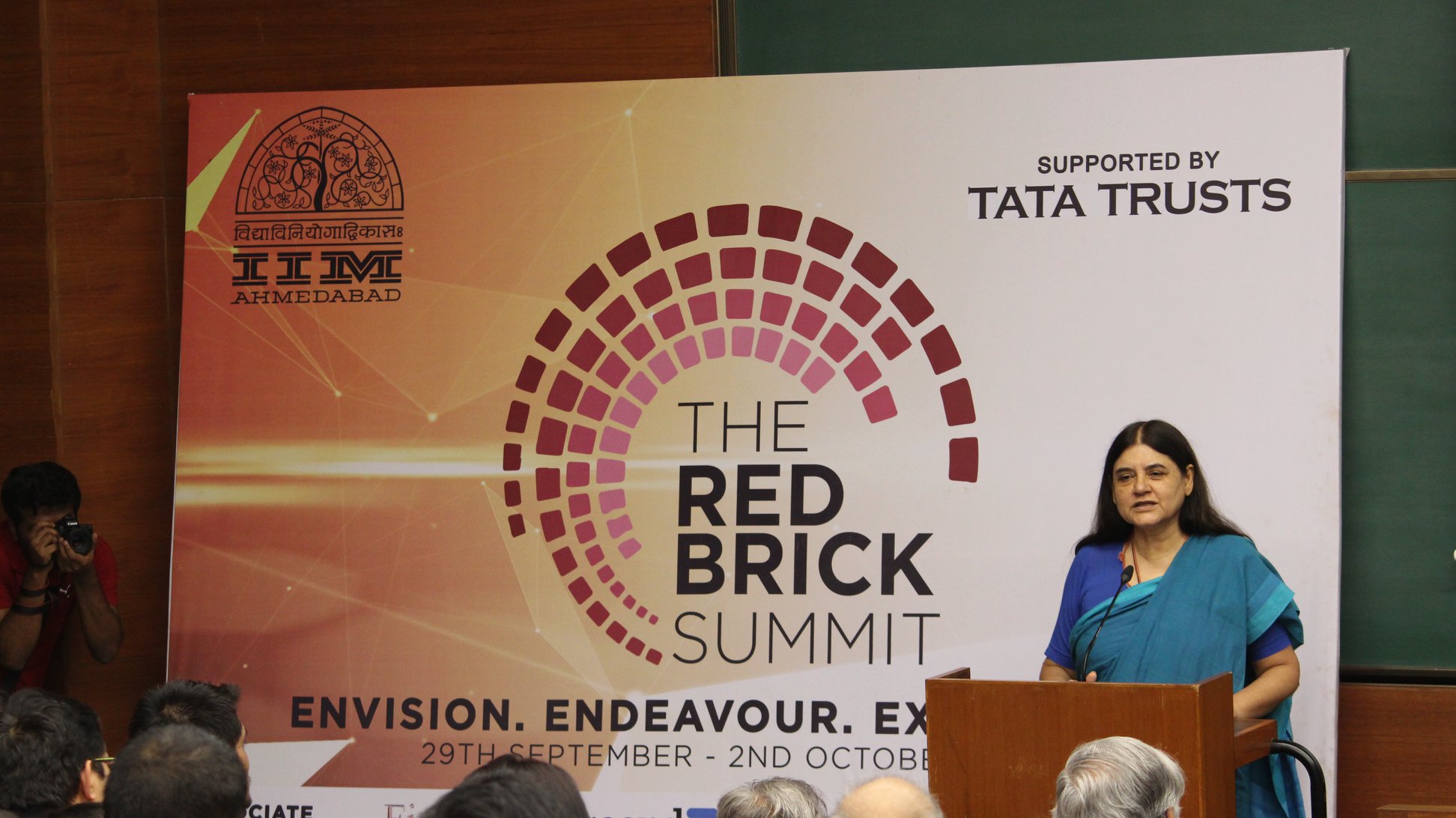
Workshops: Day 3 of TRBS had several workshops totaling a footfall of 400 people. The Product Management workshop hosted by Microsoft introduced the participants to the fundamentals of product management. Hosted by two industry veterans Mr. Vijay Rajagopalan & Mr. Venkateswaran Bharathan, the workshop went through Microsoft’s key areas of focus before deep diving into the role of a product manager.
There were two finance-related workshops. The first one hosted by Reliance Mutual Fund introduced the participants to the Indian economy from the perspective of an accountant and then went over the various kinds of investing techniques. The second one hosted by HDFC was a session on digital banking and innovation. The workshop highlighted the strides made by the various banks in AI, blockchain and customer experience as well as what the digital wave will bring to the banking sector.
Mad Over Marketing’s Siddhant More swept off his audience with his “MAD talk” which was an amazing take on the marketing and advertising trends that have evolved through the years and how the different brands have achieved it. He began the MoM workshop explaining what brands do to advertise. Attention, perception and message – these are the 3 key things that every advertisement should follow to strike a chord with its people. Advertising has evolved from descriptive and informative ads in the 1980s and 1990s to minimal advertising in the present years which rightly captures the attention of the crowd in a few seconds and manages to convey the right message too. Quoting numerous memorable ads, Siddhant went on to explain ambush marketing through the famous Cola Wars, and the Hindu v/s ToI ads. He spoke on e-commerce wars, Twitter brand wars and finally the evolution of marketing from jingles to breaking stereotypes. He gave an entertaining presentation along with great examples about Coca-Cola, Amul, Zomato and a number of marketing giants which the crowd loved a lot.
OCTOBER 2, 2018 (Tuesday) The day began with the 4K marathon run which saw participation from not just the IIM Ahmedabad community but also from the people visiting the campus. The four-day extravaganza ended with the flagship event of TRBS, the Motilal Oswal Think Equity Think QGLP contest, claiming the team from IIM Ahmedabad as winners. Finalists from all over India, notably IIM Bangalore, IIM Kozhikode and NMIMS, Mumbai had come to participate in the biggest stock pitch event in India. The last day of the management festival ended with a slew of amazing workshops such as UberEats’ Operations Management, Tata Trusts’ building social enterprises, Studio carbon’s design thinking and building sustainable organizations, and enthralling speaker sessions. The entire team of TRBS worked incredibly hard to make the second edition of The Red Brick Summit a huge success and truly echoed the motto of “Endeavour. Envision. Experience.”
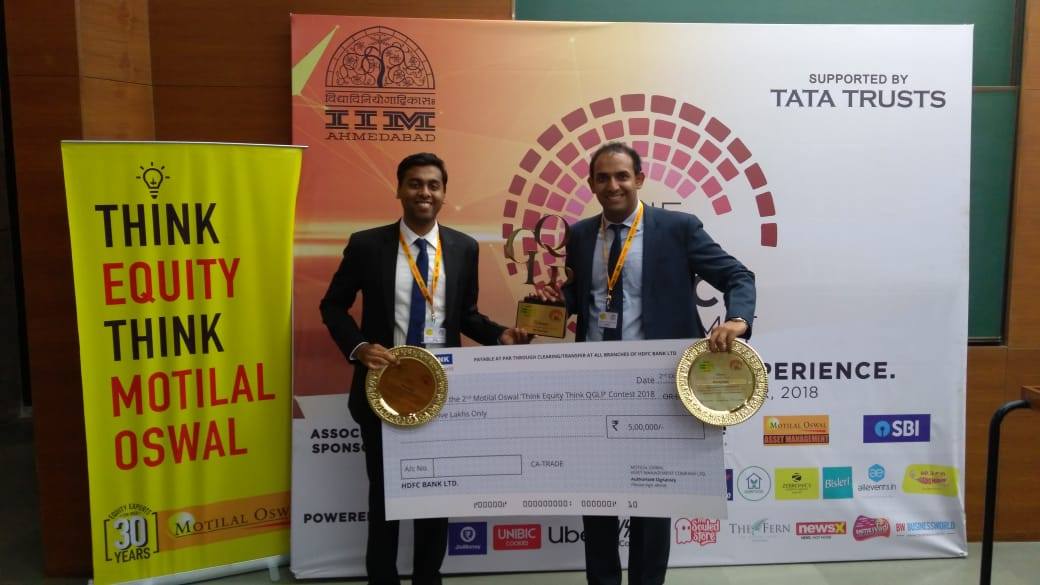
Speaker Sessions: Ms. Sangeeta Talwar, manager of iconic brands and campaigns like Maggi and Tata Tea’s Jaago Re spoke about learnings from her corporate life in a session moderated by IIMA’s Prof. Arvind Sahay. She highlighted the importance of knowing why a certain brand had succeeded rather than just moving on, accepting the success as a given. This, in her opinion, would prevent a blind replication of success stories to incompatible businesses. She also highlighted the importance of drawing one’s own inferences from market research, using data as an illuminator instead of a support. She spoke about her idea of the ‘flyvision’ leadership strategy, as discussed in her book, “The Two-Minute Revolution: The Art Of Growing Businesses”.
Social entrepreneur and founder of the NGO Goonj, Mr. Anshu Gupta, conducted a talk on rural development and sustainable social entrepreneurship. He spoke about the deplorable state of the farmers in our country and gave startling statistics on the rate of farmer suicides. Speaking about the high dropout rate from government schools in socio-economically backward regions, he said that one of the reasons for this could be that the students are unable to see the blackboard and simply can’t afford a pair of spectacles. He ended the talk by saying that one doesn’t need to enter social entrepreneurship to do good and there is ample opportunity in any career to make a difference.
Medha Patkar, a social activist working on various crucial political and economic issues faced by the marginalised community, engaged a packed classroom in an interactive session. She addressed various concerns around the social movements she has been a part of and the impact her team has created. Amongst the several social movements she initiated, the most notable one has been the Narmada Bachao Andolan. Ms. Patkar elaborated upon the continuous opposition NBA has faced and how she draws her inspiration to work from the struggles of the people. She educated the audience about other environmental, social and structural gaps in the government’s efforts of rehabilitation. She discussed various methods to improve the efforts of rehabilitation and emphasised the need of post facto analysis and decentralisation of dams. In her words, ‘Development is not limited to activities driven by money and the negative impact of development should be analysed with greater severity’.
Biswapati Sarkar, co-founder of the very popular online media platform,“The Viral Fever” addressed an auditorium brimming with young minds who were influenced by the phenomenal success of the platform and the mastermind behind it. He reminisced about his days at IIT Kharagpur where he was hugely involved in dramatics. When his sketch of a Roadies spoof went viral, he knew he enjoyed being a writer. He believes his delusion about becoming a famous writer eventually pushed him into taking up a risky profession and eventually making an impact in it. When asked whether we would see him sharing the same platform with Arnab Goswami, whose impression Mr. Sarkar does flawlessly, he said we can expect something similar soon. He addressed the queries of struggling content-writers explaining that the shelf life of a content is very small and it is truly challenging to stand out among the huge pool of good content available now.
Workshops: The workshop by Tata Trusts discussed their work, in particular the one by Social Alpha which focussed on supporting social innovations and early stage social enterprises. The speakers talked about the spectrum of socially focused entities and how the very definition of a social enterprise is so broad. By discussing examples of enterprises being incubated by Social Alpha, the speakers sought to encourage participants to look at the space as adding value to the society – something fundamental in the ethos of the Tata group.
UberEats hosted an operations management workshop where they discussed how they ensure the timely delivery of the orders placed. The speaker also focussed on the expectations of various stakeholders- eater, delivery partner and restaurant and how to incorporate them to create a successful delivery management platform.
TRBS also witnessed some amazing Time Out events, including Innovation Playground, Drum Circle, Footloose, Garba Night, A Day at IIMA, Heritage Walk, Model Presentation by RTERC and Prayaas, Off the Record Session with Prof. Aditya Christopher Moses and many many more.

